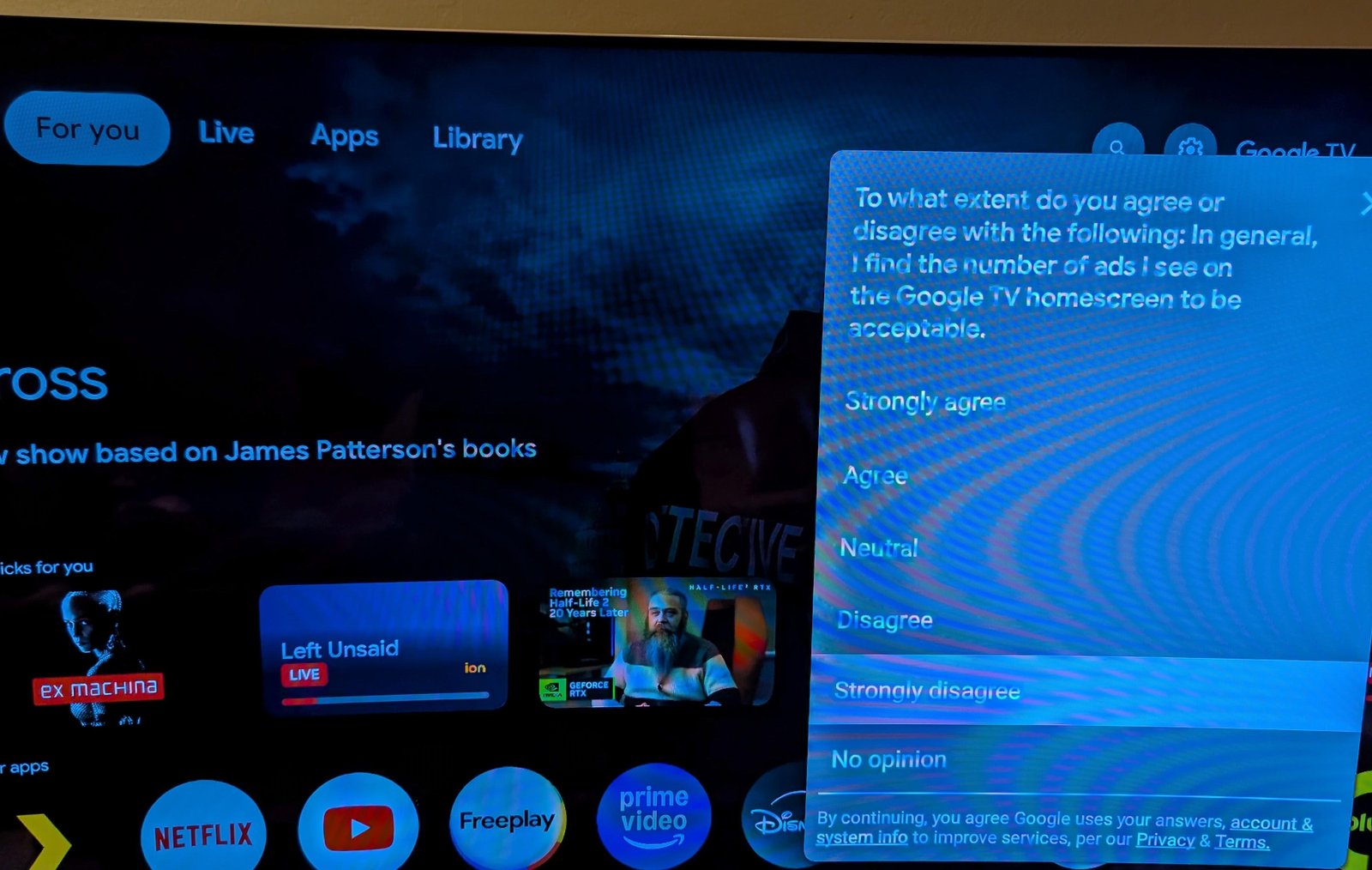What you need to know
- Google TV is conducting a survey to gauge user opinion on the frequency of ads appearing on the home screen. Users are asked to rate if they “strongly agree” or “strongly disagree” with the ads.
- While the survey may result in a reduction of ads, it could also serve as justification for increasing ad placements, especially considering Google’s reliance on ad-generated revenue.
Google TV recently launched a survey aimed at users, prompting concerns regarding the prevalence of ads displayed on the home screen.
According to a Reddit post discovered by 9to5Google, Google posed questions to U.S. Google TV users specifically about their opinions on home screen ads and nothing else.
The survey appears in the bottom-right corner of an Onn 4K Box, inquiring whether users find the home screen ads on Google TV beneficial or bothersome, with response options ranging from “Strongly Agree” to “Strongly Disagree.”

The survey suggests that Google is cognizant of potential user dissatisfaction with the abundance of ads on Google TV. This reflects the reality that ads have become a pervasive aspect of the digital landscape.
Google’s emphasis on increasing ads on Google TV has raised eyebrows. While the survey could result in a reduction of ads, it could also serve as a means to justify introducing even more ads. Given Google’s robust ad revenue stream, it’s unlikely that ads will vanish anytime soon.
It’s disappointing to witness the transformation of the once ad-free digital realm into an ad-saturated environment. Several popular streaming services, initially focused on ditching traditional TV, have now embraced ad-driven monetization.
Formerly known for personalized recommendations, Google TV now heavily features ads, including autoplay video ads. This shift from relaxed suggestions to overt commercialization aligns with the broader trend of merging entertainment with advertising more than ever before.
Google isn’t the only company exploring on-device ads for financial gain. Amazon has introduced similar features, and Roku has found a way to profit by running ads during breaks in gameplay.
